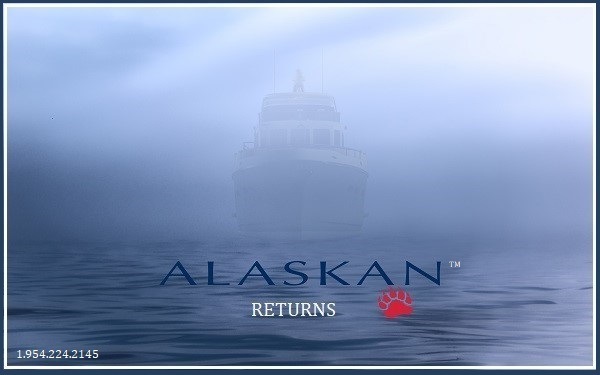Finding the Route Around Self-Pity

THE FACT IS POOR CHOICES OFTEN LEAD TO BAD CONSEQUENCES... EVEN FOR ENTREPRENEURS...
But many ... entrepreneurs ...harbor secret demons: Before they made it big, they struggled through moments of near-debilitating anxiety and despair--times when it seemed everything might crumble...
From an article concerning the hardships of being an entrepreneur
There seems to be a new genre evolving on social media. It involves detailing the trials and tribulations faced by both successful and unsuccessful entrepreneurs. Which might be fascinating except that it's imbued with an undertone of pity-the-poor-entrepreneur.
Well, I just don't get it. Yes, it is probably useful for would-be entrepreneurs to understand the obstacles and pitfalls, the sacrifices and losses — of friends, family, possessions, savings, health — along the way. And it is interesting, perhaps, for the rest of us to know the hard side of entrepreneurship, the long hours, the risk, the constant tension and potentially ensuing psychological trauma involved.
But should we feel sorry for entrepreneurs who risk all and lose? Or for those who go through hell and... win? I think not in either case. For the path they chose to follow, and the consequences they faced, were the result of their own free choice, if not their own making.
Empathy for someone who has suffered, or is suffering entrepreneurial hardship is not the same as feeling sorry for them ... although the two are often confused...
If an entrepreneur, successful or otherwise, says, "Hey, budding trailblazers of business opportunity, think more than twice about your choice, because it isn't an easy path to follow..." Or some such. Then I understand and applaud his or her willingness to share the negatives of his or her experience. And if those negatives were particularly trying, then I sympathize and wonder about how I would have fared in their shoes.
However, that does not mean I feel sorry for them. Or that I should.
They did what they did. And however it turned out is on them, not me, not the world, not fate, or Kismet, or Karma. Well, maybe if they suffered and failed, it was Karma, and I just don't know enough about their background and lives to judge. But that's a separate topic entirely.
So, where does this evolving genre of pity-the-poor-entrepreneur come from? From, I submit, a lack of understanding of the realities of business and free enterprise. In particular, a failure to understand that if free enterprise involves having the chance to make it really big on the basis of your own abilities and hard work, it also involves the freedom to fail, to hit snags and pitfalls that batter and beat you, possibly to an emotional pulp.
Just as free enterprise means the freedom to profit from one's ability and efforts, it also means the freedom to lose... And if we should not begrudge those who make it big, conversely, we should not be called upon to feel sorry for those who do not...
I recently did a search for entrepreneurs on the other professional networking platform. The query returned more than 1/4 million self-designated entrepreneurs of which a statistical sampling showed fewer than 10% who appeared on the face of it actually to be starting or running businesses, or developing and marketing new and purportedly innovative products.
Granted, that statistic could be off. But even if off by 100% or even 200%, the conclusion remains that the vast majority of people who see themselves as entrepreneurs aren't. They may want to think they are, or they may be planning to become one. But they aren't yet.
Which also means they aren't prepared for the real world of entrepreneurship — mostly, I venture to say, because they don't really know anything about the world of business.
When I say they don't know anything about business, I don't mean they haven't worked in a business environment, or for a business, or in public service. What I mean is they haven't actually faced the personal need to raise working capital, meet payrolls, pay overheads, direct marketing, develop and implement strategic planning, and so on, and so on, and...
In other words, when I say they don't know anything about business, I mean they haven't yet experienced fully, or at least they are just beginning to experience the reality of the buck stops here. Not to mention the reality of what happens when the bucks stop coming in.I also mean that, when those who are in the throes of entrepreneurial shock first decided to embark on their adventure, they had no idea of how hard the work would be, or how long the hours, or how the enterprise would absorb, literally, their every waking moment and quite a few of those moments when they would otherwise have been sleeping.
I once had a client who was the paradigm entrepreneur. And sufficiently successful to have been officially well within the Forbes 200 for several years. We had a one-on-one relationship for a decade, during which time I came to learn a lot about what makes a true entrepreneur tick. I won't digress into all of that now, so if you're interested in that story, see: "What I Learned About Entrepreneurs From the Founder of Monster.com" What I will do now is relate to you an anecdote that says a lot about the entrepreneurial lifestyle.
Shortly after my client hit the Forbes 200 with an estimated net worth of $1.8 billion in 2001 dollars, he was interviewed by an NY news magazine. By that time, he was in his fifth marriage. When the interviewer asked him about it, he said, "Change is good." Which was a witty way of shutting down that line of inquiry.
What was not evident was that he was in his fifth marriage because business and its demands always came first. Not that he didn't love and take care of his numerous children and families, for he did. But business was his mistress and always had priority call on his time. And the serial marriages were the price he paid for that, in several different senses.
At one time, starting a business involved accumulating working capital, buying or leasing premises, installing phones and other tangible infrastructure, etc. ... Today, many so-called start-ups occur in the virtual world, where all you need is a computer and an ISP ...
The result is that many people get an idea that being an entrepreneur is a great alternative to finding another job, or keeping the one they already have. As a result, they drift into taking a half-assed run at starting a business, without understanding the difference between cash flow and profit. And they see investment capital as an asset when actually it is a liability that has to be paid back. They think that their salvation will come from finding an angel venture capitalist, when the truth is that most VCs require a structure that enables them to take your company away from you as soon as you fail to make your projected numbers, whether those are in terms of gross revenues or profits or schedule for achieving a projected level of market share.
It's often said that most entrepreneurs who make it big, fail many times before they do. I don't know if that's really true. But I do know that entrepreneurs who have what it takes to keep plugging away, don't spend much if any time feeling sorry for themselves. Nor beating their breasts, asking for others to feel sorry for them.
For they know that the travails they experience are no more difficult than those faced by people who lose a job at 50+ years old, after years of hard and honest work as an employee. Nor any more difficult than those faced by a returning war veteran seeking to re-enter the workforce.
I have been a small businessman most of my working life. And I've also at times been a top-level executive for a couple of medium-sized companies, including one with 600 employees and more than $100 million in annual gross revenues. I've experienced the killer pressure of facing a $1 million per month payroll, and having to generate sufficient cash flow to keep the doors open. But I have never been, nor ever considered myself an entrepreneur. Maybe that is why I just don't get all the play for sympathy... or the willingness to provide it. For as I see it:
Free enterprise and its handmaiden entrepreneurship mean walking a tightrope without a social safety net. Consequently, if you can't take the fall, don't answer the call ...— Phil Friedman
Author's Notes:
This post is the eighth in a series of philosophical reflections which I've dubbed "The Road Chronicles" because they are organized around the metaphor of travel along a road. If you would like to read one or more of the previous installments of the series, they can be found at:"LinkedIn Is a Highway, Not a Destination"
"Cynicism Can Be the Final Refuge of Idealism"
"Do Not Mistake What Is For What Should Be"
"The Syndrome of the Long Goodbye"
"Finding Your Way Past Self-Reflection to Action"
"Living in Third Person""Finding Your Way Back to Intelligence"
on my beBee profile. As a writer-friend of mine says, you can always change your mind later.
Feel free to "like" and "share" this post and my other LinkedIn articles — whether on LinkedIn, Twitter, Facebook, or Google+, provided only that you credit me properly as the author, and include a live link to my original post.
About me, Phil Friedman: With 30 some years background in the marine industry, I've worn numerous hats — as a yacht designer, boat builder, marine operations and business manager, marine industry consultant, marine marketing and communications specialist, yachting magazine writer and editor, yacht surveyor, and marine industry educator. I am also trained and experienced in interest-based negotiation and mediation. In a previous life, I taught logic and philosophy at university.
To schedule an appointment for a free 1/2-hour consult email: info@learn2engage.org. I look forward to speaking with you soon.

![A
PH siogpoets]
Em LEE] 2 huencer](https://contents.bebee.com/users/id/10277593/article/finding-the-route-around-self-pity/2bfcb7da.jpg)
Articles from Phil Friedman
View blog
LOOKING BACK AT THIS PIECE I WROTE FOR PASSAGEMAKER MAGAZINE IN 2014, IT SEEMS THAT THE DARK CLOUD S ...

SEATTLE YACHTS BUYS ALASKAN BRAND, CONTRACTS WITH FORMER PALMER JOHNSON CEO, PHIL FRIEDMAN, TO DIREC ...

IF YOU'RE NOT PAYING, THEN YOU'RE THE PRODUCT... · Over the years, one of my long-term clients was A ...
Related professionals
You may be interested in these jobs
-

Cook - Franchise
Found in: beBee S2 US - 1 week ago
Denny's CHARLOTTE, United States Part timeJob Requirements · This job posting is for employment at an independently owned and operated franchisee of Denny's. · At Denny's, we love feeding people. If you have a passion for food and serving others, see what your future can hold at Denny's · As a Cook, you do more than fol ...
-
Memory Neurologist
Found in: Jooble US O C2 - 1 week ago
American Academy of Neurology Boston, MA, United StatesThe Department of Neurology at Massachusetts General Hospital is seeking a Neurologist to join the Memory Disorders Division. The applicant will be expected to have an active clinical practice, with efforts at both MGH West in Waltham and the Wang Ambulatory Care Center at Mass G ...
-

Chiropractor Plymouth, MA
Found in: Lensa US P 2 C2 - 21 minutes ago
Healthcare Recruitment Counselors Plymouth, United StatesChiropractor Plymouth, MA (40 miles SE of Boston) · Compensation- $75k-$110k per year · Sign on Bonus Plus bi-weekly Bonuses · We are looking for a chiropractor to join our practice full time in Plymouth, MA. We are looking for passionate chiropractors to join our team. As a lead ...


Comments
Phil Friedman
7 years ago #21
Phil Friedman
7 years ago #20
Randy Keho
7 years ago #19
Never thought that for a second, Phil.
Phil Friedman
7 years ago #18
Gerald Hecht, "Hope that is perpetually unaccompanied by action is self-delusion." (Scroll II - line 47, Ching King)
Phil Friedman
7 years ago #17
I am pleased for you and your friend, Randy Keho. I trust you understand that nothing in my piece is aimed as discouraging entrepreneurial efforts.
Randy Keho
7 years ago #16
Phil Friedman
7 years ago #15
thank you for reading and commenting, and for the kind words, David Grinberg. I do need to point out, however, that having strong opinions is not necessarily the same as being opinionated. But you already know that. Cheers!
David B. Grinberg
7 years ago #14
Phil Friedman
7 years ago #13
Lisa Gallagher
7 years ago #12
I think the term can be relative @Phil Friedman. I'm sure you know the definition of an entrepreneur -' a person who organizes and operates a business or businesses, taking on greater than normal financial risks in order to do so.' So I would call him a business man first and entrepreneur second. Always financial risks with the industry he's in because he's not selling a product. His company is an LLC however, when you are depending solely on contracts to keep you afloat, there will always be a risk. It's a risk that he's always been willing to take without any complaints. So, I understand what you are saying and can't fully disagree.
Phil Friedman
7 years ago #11
As far as I am concerned, you are free to obsess as you please. Indeed, you are free, should you so choose, to join the emotives who parade their psychological traumas in plaintive terms that invite expressions of sympathy and support. Just don't expect me to respect you in the morning. Cheers! And have a beer on me. Just send me the tab.
Phil Friedman
7 years ago #10
Thank you, Franci Eugenia Hoffman, for reading and taking the time to share your experience with us. I was hoping that some real small-business people, just like you and some others in this thread, would indeed join the conversation. There is so much romance promoted on social media about "entrepreneurship" that it seems to suck in all sorts of people who don't have a clue what starting and running a business is all about, let alone growing one into something that will eventually warrant an IPO. I would never want to dissuade people from dreaming big, but too often if the dreams are so big as to be impossible to realize, it is a set up for failure and more disappointment than some people can handle. It's one thing to go into a venture with your eyes wide open and fail, another to fail because you just didn't have a clue. Cheers!
Phil Friedman
7 years ago #9
Phil Friedman
7 years ago #8
thank you, Michael Angelo Icarus Yusufidis, for reading and for the kind words. Cheers!
Phil Friedman
7 years ago #7
Thank you Graham Edwards, for the kind words.
Phil Friedman
7 years ago #6
Thank you, Gerald Hecht, I'm pleased if I've helped to rationalize or confirm your choice of self-designation. Thank the gods (and the Universal Guiding Spirit) that you did not choose "Rock and Roll Ninja" or some such bull chip appellation. At least yours carries with it some self-aware, self-deprecating humor, which is refreshing in this age when almost everyone who is out of work and trying to find a job calls him- or herself and entrepreneur. Cheers!
Phil Friedman
7 years ago #5
- thank you for reading, commenting, and sharing your experience and insight. I believe, but cannot say for sure, that those who have experience with (not necessarily in) the running of businesses understand clearly who is, and who is not an entrepreneur. And it does not have to do with owning or running a business. The CEO of General Motors is NOT and entrepreneur. Nor were any of the people who replaced Steve Jobs at Apple. Cheers!
Phil Friedman
7 years ago #4
@Lisa Gallagher - thank you for sharing your husband's story. Please take a look at Charlene Burke's view below, as it parallels mine when it comes to using the term "entrepreneur". I am not exactly sure why people so frequently want to use it. I have been self-employed for most of my adult working life, and I have never used it, because I believe it applies in terms of attitude, approach, creation, and assumption of risk and type of risk. Not everyone who owns their own business or works for him- or herself falls into the category. I know someone who lost a job, ended up working as a subcontractor for a cable company doing installs. Is he an entrepreneur? No. Is that somehow lacking? No. Cheers!
Phil Friedman
7 years ago #3
@Charlene Burke - Thank for reading and for sharing your experience and thoughts. I believe that you and I agree almost entirely. The use of "entrepreneur" is currently a fad on social media networking. But to my mind working for oneself or working as a contract sub-contractor does not in itself make one an entrepreneur. Nor does being out of work and looking around for something to do. Nor does running even a very large corporation which you have not created. Entrepreneurship has to do with creation and risk. BTW, some successful entrepreneurs use the term "serial" to signal that they do not like to run or manage businesses on an ongoing basis, but prefer to create a business, get it running, and exit. I know at least half a dozen who operate in that way because they find day-to-day management doesn't keep their adrenalin pumping.
Graham🐝 Edwards
7 years ago #2
Lisa Gallagher
7 years ago #1